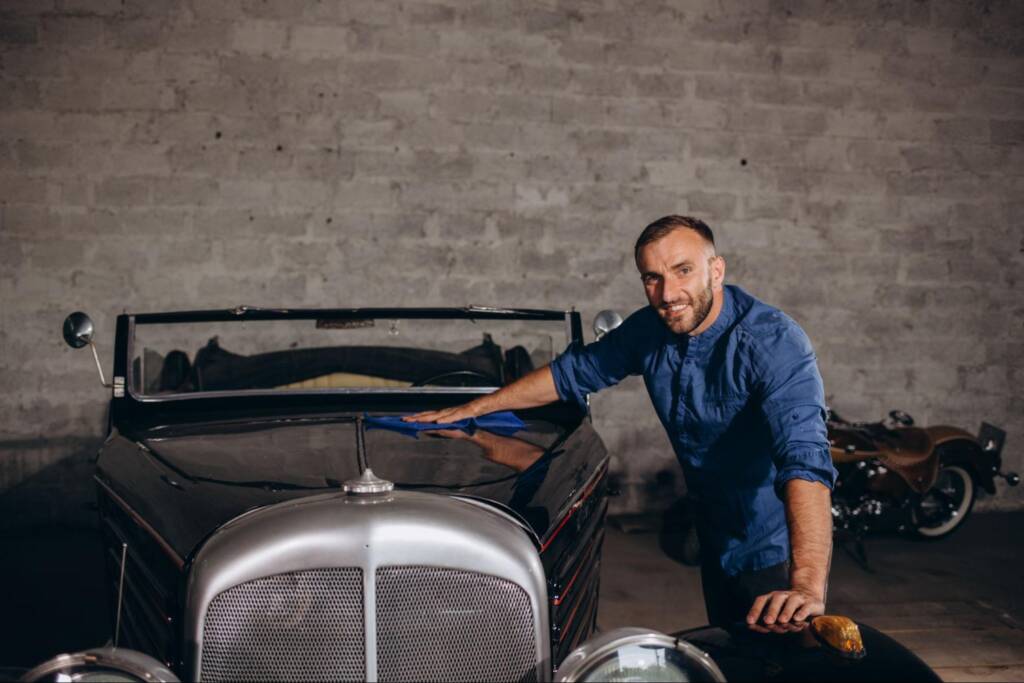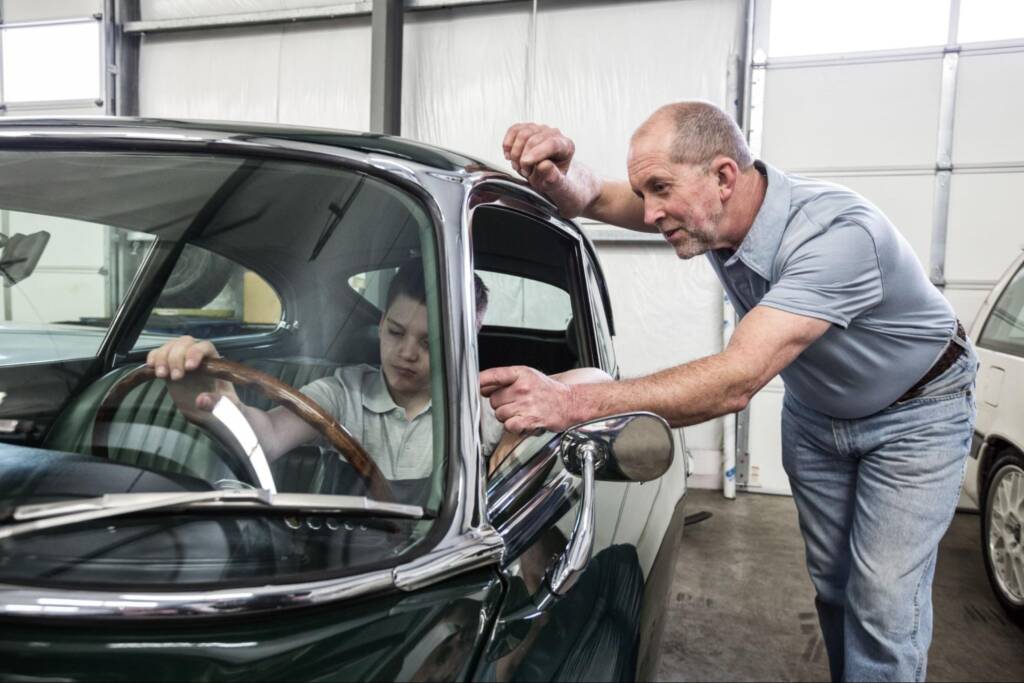There’s something powerful about restoring a classic car. It’s not just metal and bolts—it’s history, memories, and legacy on wheels. Many owners want to revive these machines with care and accuracy. But restoration goes far beyond elbow grease and a love for the past. When precision matters, professional services become the only way forward.
Why Professional Services Matter in Classic Car Restoration
Classic car restoration isn’t about quick fixes or casual tune-ups. It requires in-depth skills, time-tested methods, and historical knowledge. Professionals offer consistency and confidence from start to finish. Their experience helps avoid costly errors and ensures the car is restored correctly.
Preservation of Historical Accuracy
Keeping a classic car accurate to its original specs increases its authenticity and value. Professionals study factory records, original build sheets, and archival documentation. It allows them to recreate the exact trim, paint, and configuration. They can also access rare components that match the vehicle’s year, make, and model. Every detail matters, from the dashboard’s shape to the finish on the rims.
Deep Mechanical Knowledge
Vintage engines are complex machines that demand expert handling. Unlike modern engines, they have unique quirks and systems. Professionals know what to look for inside aged engines, transmissions, and differentials. Their hands-on experience helps spot internal wear that amateurs miss. They use proper tools to rebuild and tune engines to make them run like new ones.
Streamlined Project Management
Professionals manage classic restorations like large-scale projects. They set realistic timelines, manage milestones, and coordinate parts sourcing. This organization keeps progress steady and prevents budget surprises. Shops often work in stages: teardown, repair, reassembly, and testing. Each phase is planned, scheduled, and reviewed to keep everything on track.
Key Professional Services in Classic Car Restoration
Many restoration projects fall apart due to a lack of specialist skills. Professionals bring decades of training and tools to handle these tasks properly. Each area of the vehicle requires its own level of expertise. Working with the right shop means doing these services right the first time.
Engine Rebuilding and Tuning
A proper engine rebuild starts with complete disassembly and inspection. Professionals measure cylinder walls, crankshaft wear, and valve tolerances. They machine parts to spec and reassemble using factory-grade seals and gaskets. Tuning is the final step, where timing, fuel, and airflow are balanced. The result is a smooth, powerful performance with the character of the original.
Body and Paint Restoration
Restoring the body of a classic car takes more than sanding and spraying. Shops start with rust removal, panel alignment, and metal fabrication. Paint prep includes hours of smoothing, priming, and sanding. They use exact factory paint codes to match the original color. Techniques like wet sanding and buffing add depth and shine.
Upholstery and Interior Work
Classic car interiors must match the factory layout, materials, and stitching. Professionals rebuild seats using period-correct fabrics or leather. They restore dashboards, consoles, and trim to original specs. Interior work often includes electrical upgrades hidden beneath vintage panels. Every button, knob, and gauge is restored to look and work like new.
Electrical and Wiring Restoration
Original wiring systems often suffer from age, corrosion, or poor repairs. Professionals rewire classic cars from scratch using factory-style harnesses. They follow original wiring diagrams for accurate routing and connections. If upgrades like modern fuses or sound systems are added, they’re installed discreetly. Testing ensures every switch, light, and system works flawlessly.

Benefits of Hiring Classic Car Restoration Experts
Going the DIY route can be tempting, but it’s rarely practical. Experts save time, reduce risk, and deliver higher-quality results. Their experience turns overwhelming tasks into manageable steps. They know the value of doing it once and doing it right.
Saves Time and Reduces Mistakes
Restoring a classic car without guidance often leads to frustration. Pros already know what works and what doesn’t. They follow efficient workflows that avoid guesswork and do-overs. With fewer mistakes, the car spends more time being driven and less on the lift, speeding up the process from start to finish.
Boosts Long-Term Vehicle Value
A well-documented professional restoration adds serious resale value. Buyers trust certified work over backyard jobs with no records. A clean restoration history can double the price of a collector car. Appraisers also prefer cars with proof of professional care. When it’s time to sell, the investment pays off.
Access to Rare Parts and Custom Fabrication
Some parts are no longer made and cannot be found online. Professional restorers know where to look through dealer networks and specialty shops. If a part cannot be sourced, they have the tools to recreate it by hand. Accurate fabrication is a rare skill, from trim pieces to full fenders. That access makes or breaks some restorations.
Choosing the Right Classic Car Restoration Shop
Not all shops have the same standards, tools, or track records. Picking the right one starts with research and careful evaluation. You need someone who understands your vision and respects the car’s history. The relationship between the owner and the restorer must be open and transparent.
Reputation and Portfolio Matter
Always look at a shop’s completed builds before hiring them. Real-world results speak louder than sales pitches. Shops that have restored similar models are often better prepared. Ask for photos, case studies, or references from past clients. Reputation in the restoration community means more than flashy marketing.
Transparent Quotes and Timelines
Avoid shops that promise fast turnarounds or vague pricing. A good restorer breaks down the cost by parts and labor. They also explain which steps take the longest and why. Timelines should be based on the current workload and parts availability. It keeps expectations realistic from the start.
Communication and Collaboration
Restoration isn’t a hands-off process for the owner. A trustworthy shop keeps you informed and involved. They ask for your input on materials, finishes, and optional upgrades. Good communication avoids misunderstandings and builds trust. You should feel like a partner, not just a customer.
Legal and Registration Support in Classic Car Restoration
Legal steps are part of any classic car restoration journey. Many owners encounter red tape regarding titles, registrations, and vehicle identification numbers (VINs). These challenges can stall or complicate even the best restoration projects. Professional shops often step in to help navigate this maze.
Title Recovery and Ownership Verification
Older cars often come without clean paperwork. Some may be missing titles, while others have inconsistent registration histories. Professionals can help recover lost titles or assist with bonded title applications. They also verify that the car matches its VIN to avoid legal issues later. That keeps your project above board and ready for the road.

VIN Decoding and Compliance Assistance
Matching a vehicle to its original specs often starts with decoding the VIN. Professionals use factory charts to identify original engines, trims, and features. They can tell if the car has matching numbers or replacement parts. In some states, emissions or safety checks may apply even to vintage vehicles. Experts help prepare your documentation so your car passes inspection without delays.
Modern Touches for Classic Car Restoration Projects
Not every owner wants their classic car to be 100% stock. Some prefer modern comforts while keeping the vintage feel. Professionals know how to update features discreetly, keeping the spirit of the original car alive while making it safer and more usable.
Hidden Tech for Comfort and Convenience
Modern features can be installed without changing the look of the car. Air conditioning units are tucked behind factory vents, Bluetooth radios are built into vintage-style head units, and heated seats and LED lighting can be added subtly. These changes improve the driving experience without ruining the retro appeal.
Safety Upgrades With a Classic Look
Drum brakes, glass fuses, and old suspension systems don’t cut it today. Pros upgrade these parts while keeping a period-correct appearance. Disc brakes are painted to match old drums. Electronic ignition systems fit inside traditional distributors. These upgrades make driving safer without making the car look modified.
Classic Car Restoration for Investment and Resale
Not every restoration is about personal passion; some are about smart investing. Classic cars can grow in value when appropriately restored. Professionals help owners make decisions that pay off in the resale market. Their advice turns a hobby into a long-term financial asset.
Restoration Planning With Resale in Mind
Restoring for resale means knowing what buyers want. Professionals help identify high-demand models, rare options, and valuable trims. Matching the original build sheet adds credibility and boosts price. Color choice, originality, and documented work also play a role. Every choice made during the build affects how the car will perform in the market.
Certification and Documentation Boosts Market Confidence
A documented restoration builds buyer confidence. Professionals supply photos, receipts, and complete work histories to prove quality. Some cars also qualify for certifications from marque clubs or restoration networks. These records help during appraisals or classic car auctions. Without them, buyers hesitate and offers drop.
Customization vs. Authenticity in Classic Car Restoration
Every classic car owner wrestles with one big question: keep it stock or make it your own. Some prefer originality, while others want personal touches. Professionals guide these decisions with both taste and long-term value in mind. The best build respects the past while honoring the present.
Balancing Personality with Period Correctness
Adding personal flair doesn’t mean ruining a restoration. Pros help owners choose tasteful upgrades that don’t destroy value. That could mean a different paint color or updated wheels that match the car’s era. They also suggest reversible changes if the next owner wants to return to stock. That makes the build feel personal without hurting collectibility.
When Custom Builds Make Sense
Sometimes, stock just isn’t practical. Restomods use modern engines, brakes, and tech inside vintage shells, making the car more comfortable and usable for daily driving. Professionals plan these builds with clean design, performance, and safety. A well-executed restomod keeps the spirit of the classic car alive—even if it’s not factory original.
Turn Classic Car Restoration Into a Legacy
A classic car isn’t just a machine—it’s a story that deserves to be told with care, skill, and respect. That story can fade into the wrong hands or thrive when guided by experts who know every inch and era. Trusting professionals isn’t about handing over control—it’s about giving your car the future it earned. If you’re restoring something timeless, do it with people who can make history run, shine, and roar again. The next chapter of your car’s life starts when you choose to restore and do it right.
Looking for more ways to bring your classic back to life? Head to the Dark Night Specialties blog for trusted guidance and stories that matter.

